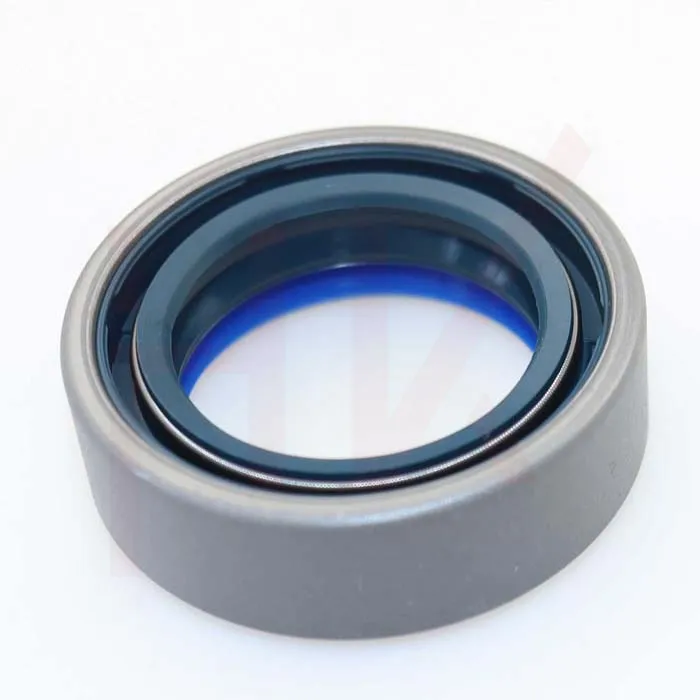8 月 . 30, 2024 23:55 Back to list
hydraulic lip seal
Understanding Hydraulic Lip Seals Functionality and Applications
Hydraulic lip seals, also known as hydraulic seals or lip-type seals, are indispensable components in hydraulic systems. They are designed to prevent the leakage of hydraulic fluids, ensuring that the system operates efficiently and safely. Comprising flexible materials, they are primarily used to seal moving parts, such as pistons and rods, within hydraulic cylinders. Understanding the structure, functionality, and applications of hydraulic lip seals is critical for engineers and technicians working with hydraulic machinery.
Structure and Design
A hydraulic lip seal typically consists of a circular elastomeric profile with a lip or edge that contacts the surface of a rod or cylinder. The primary materials used in manufacturing these seals include rubber compounds, polyurethane, and fluoropolymers, each offering varying degrees of chemical resistance and temperature stability. The design features of the lip seal—such as its shape, stiffness, and contact pressure—are tailored to meet the specific requirements of the application.
The sealing action occurs when the lip makes contact with the shaft or bore, creating a barrier that prevents fluid from escaping. The effectiveness of a hydraulic lip seal lies in its ability to adapt to dynamic conditions, accommodating minor misalignments and fluctuations in pressure. Some designs also include additional features such as garter springs, which help maintain the pressure on the lip against the shaft, enhancing sealing performance over time.
Functionality
Hydraulic lip seals serve several important functions within hydraulic systems. Their primary purpose is to prevent fluid leaks, which can lead to reduced efficiency, increased maintenance costs, and potential environmental hazards. Additionally, they help retain lubrication within hydraulic components, ensuring smooth operation and reducing wear on moving parts.
hydraulic lip seal

Another significant role of hydraulic lip seals is to exclude contaminants from entering the hydraulic system. Dust, dirt, and moisture can severely compromise hydraulic fluid and lead to system failures. The effective sealing action of lip seals creates a barrier that keeps these contaminants at bay, thus prolonging the lifespan of the hydraulic components.
Applications
Hydraulic lip seals find widespread applications across various industries, including manufacturing, automotive, aerospace, and construction. In mobile equipment such as excavators, loaders, and forklifts, these seals are essential for maintaining hydraulic cylinder integrity. In automotive applications, hydraulic lip seals play a crucial role in brake systems, power steering, and transmission systems, ensuring optimal performance and safety.
In hydraulic machinery, reliability is paramount. Seals must withstand high pressures, varying temperatures, and exposure to aggressive fluids. As such, the selection of appropriate materials and designs is critical. Engineers must consider factors like fluid compatibility, operating temperature ranges, and dynamic versus static sealing requirements to ensure that the chosen lip seal performs effectively within the hydraulic system.
Conclusion
In conclusion, hydraulic lip seals are a vital component of hydraulic systems, contributing to their overall functionality and efficiency. Their ability to prevent leaks and keep contaminants out is crucial for the longevity and reliability of hydraulic machinery. With advancements in materials and design, the effectiveness of hydraulic lip seals continues to improve, making them indispensable in modern engineering applications. Understanding their functionality, structure, and diverse applications allows engineers and technicians to choose the right sealing solutions for optimal system performance.
-
The Power of Advanced Sealing: High-Pressure Solutions for Modern Machinery
NewsOct.29,2024
-
Optimizing Machinery with High-Performance Oil Seals
NewsOct.29,2024
-
Maximizing Machinery Efficiency with Advanced Oil Seals
NewsOct.29,2024
-
Ensuring Equipment Longevity with Quality Oil Seals
NewsOct.29,2024
-
Enhance Equipment Performance with Quality Oil Seals
NewsOct.29,2024
-
Custom Oil Seals for Specialized Machinery Needs
NewsOct.29,2024
-
The Role of Wiper Seals in Dust Sealing and Oil Protection
NewsOct.20,2024
Products categories
















